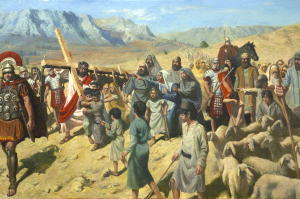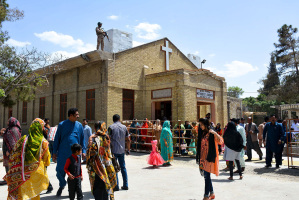Colombia – More Than 130 Churches Closed Since 2004
Churches throughout Colombia endure various levels of persecution, Open Doors research discovered. Sometimes church buildings remain open although persecutors may try to intimidate members into hiding.
Elsewhere in the country, however, persecution means closed buildings. Leftist guerrillas and right-wing paramilitary are behind most of the 132 forced closures of churches (excluding house churches) in Colombia since 2004. A few other churches have been forcibly closed by indigenous groups.
The main reason illegal armed groups force churches to close is disagreement with pastors' and church leaders' preaching and teaching. Guerrillas believe Christianity counters Marxist doctrine and that pastors seek to further United States "imperialism." They believe pastors raise money to build meeting places but care nothing about building social projects that help the poor. In contrast to pastors and other church leaders, guerrillas hold that the solution to all problems is not in God, whom they believe doesn't exist, but in armed revolution.
In late March, Open Doors spoke with a high-ranking FARC commander who reiterated that orders to shutter church buildings and ban evangelical meetings in guerrilla-controlled zones comes from the rebel group's national leadership committee. These leaders have power to issue death orders against pastors who disobey their orders.
Guerrilla groups employ a hierarchy of authority within their organization. A single commander, however, must carry out the board's decisions whether to allow pastors to hold services or even meet in members' homes. Oddly enough, most guerrillas either have Christian relatives or have belonged to a church themselves.
Open Doors interviewed a commander who said that rebels take no issue with a church that abides by guerrillas' rules. Such agreements, however, are difficult for Christians to swallow:
- No meeting in homes or church buildings without the guerrilla leader's permission.
- Christians may not preach against armed revolution or to guerrillas themselves.
- Churches may not collect offerings except when guerrillas demand payments for themselves. Churches may not invite preachers not from the area.
One pastor in southern Colombia said that while the church preaches peace, guerrilla groups recruit young people to preach war. "It is not possible to obey to the guerrilla groups because we cannot go against biblical principles."




























